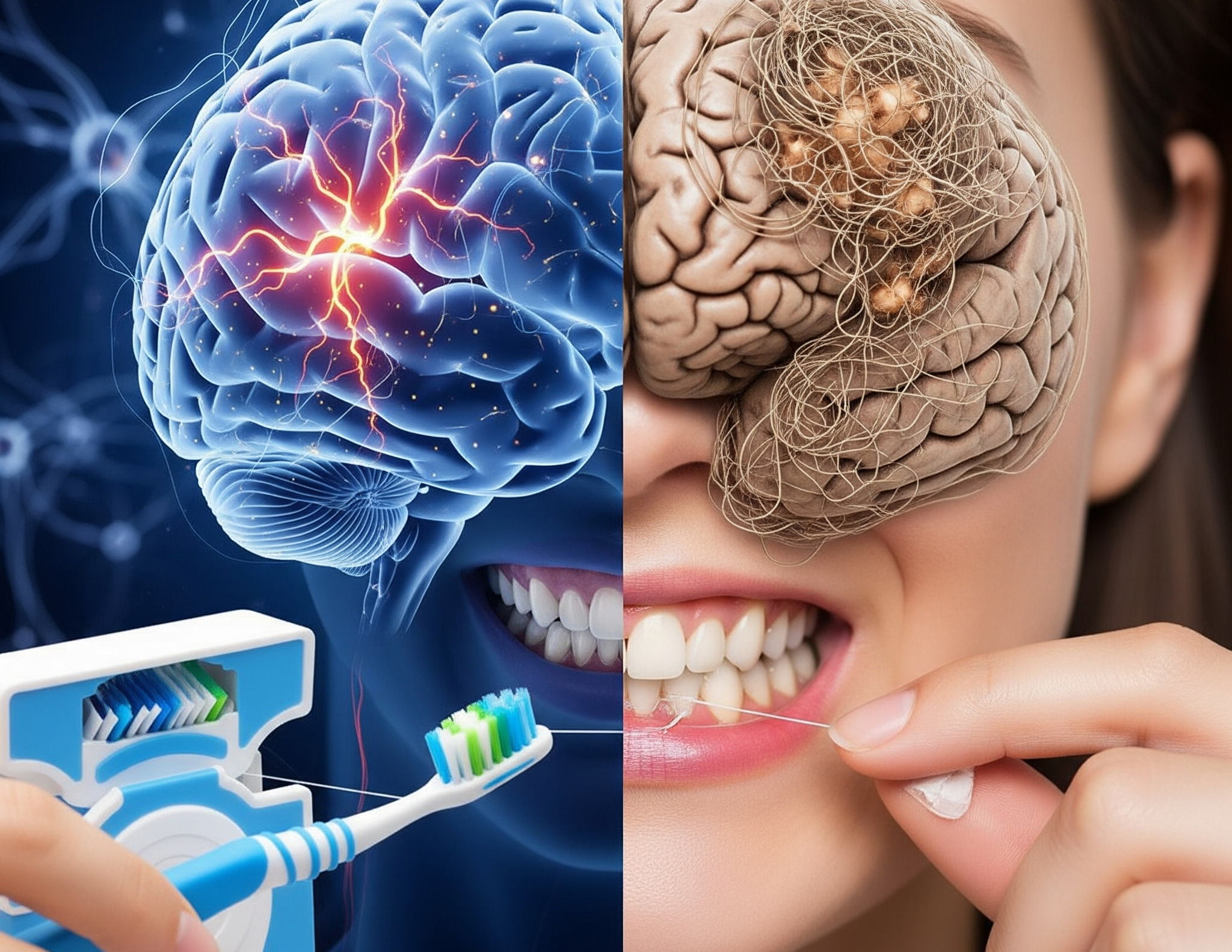
Rama Dental Clinic

Can Poor Oral Hygiene Contribute to Alzheimer's? A Closer Look
Could What Happens in Your Mouth Affect What Happens in Your Mind?
It may seem unlikely at first — but a growing body of scientific research is suggesting that poor oral hygiene could be connected to the risk of developing Alzheimer's disease.
In this blog, we'll take a closer look at this emerging connection and what it means for your dental care and long-term brain health.
🧬 What's the Connection Between Gum Disease and Alzheimer's?
Multiple studies have revealed that people with chronic gum disease (periodontitis) are more likely to develop cognitive decline, including Alzheimer's.
One landmark study found that Porphyromonas gingivalis, a bacteria involved in advanced gum infections, was present in the brains of individuals affected by Alzheimer's disease.
This discovery has led researchers to explore how something happening in the mouth might be impacting the brain.
How Could This Happen?
Scientists believe there are two primary pathways that may explain the connection:
Systemic Inflammation
- Gum infections cause ongoing inflammation.
- This inflammation can spread through the bloodstream and possibly affect the brain, leading to damage over time.
Bacterial Migration
- Harmful oral bacteria might travel from the mouth to the brain.
- These bacteria may contribute to amyloid plaque formation — a known marker in Alzheimer's pathology.
⚠️ Symptoms of Gum Disease You Shouldn't Ignore
Maintaining good oral hygiene is not just about avoiding cavities — it's also a protective strategy for your overall health. Here are warning signs of gum disease to watch for:
- Bleeding gums when brushing or flossing
- Swollen or tender gums
- Receding gum line
- Bad breath that doesn't go away
- Loose teeth
Left untreated, these symptoms can lead to advanced periodontitis — and now, potentially contribute to neurodegenerative issues too.
🛡️ Can Better Oral Hygiene Reduce Alzheimer's Risk?
While researchers are still studying the exact nature of the link, one thing is clear: Keeping your mouth healthy helps lower inflammation and bacterial load — which may reduce the risk of Alzheimer's progression.
Here are proven daily habits that support both oral and brain health:
- 🪥 Brush twice a day using fluoride toothpaste
- 🧵 Floss daily to remove plaque between teeth
- 🦷 Get regular dental checkups every 6 months
- 🍎 Eat a balanced diet rich in antioxidants and omega-3s
- 🚭 Avoid smoking and limit sugar intake
💡 Expert Insight
"We're beginning to understand that the body's systems are more connected than we realized. Chronic inflammation in the mouth could contribute to inflammation in the brain."
"Good oral hygiene isn't just about a pretty smile anymore. It might actually protect your memory."
🏥 Dental Care in Lucknow That Looks Beyond the Smile
At Rama Dental Clinic & Implant Centre, we focus on holistic dental care that supports your overall well-being — including your long-term brain health.
We offer:
- Advanced gum disease treatments
- Preventive care for adults and seniors
- Personalized oral health education
Call now to schedule your consultation and take a proactive step toward both dental and cognitive wellness.
👉 Visit Rama Dental Clinic Website
🔚 Final Thoughts
The mouth is no longer seen as separate from the rest of the body — and it's becoming increasingly clear that what's happening in your mouth can impact your brain.
By improving your daily dental routine and getting regular checkups, you're not only protecting your smile — you may also be safeguarding your memory.
Explore More Blogs
Zinc series 1
Zinc is a nutrient that plays many vital roles in your body. Because your body doesn't naturally produce zinc, you must obtain it through food or supplements.
Read MoreWhat Is a Dental Implant and Who Needs It?
Losing a tooth can affect the way you eat, speak, and smile. It can also lower your confidence. But thanks to modern dental treatments, there's a strong and long-lasting way to replace missing teeth — dental implants.
Read MoreWhy Dental Implants Can Be Your Best Option?
Have you lost a tooth or multiple teeth through an accident or an oral disease? Do your missing teeth make it uncomfortable for you to laugh in public?
Read More